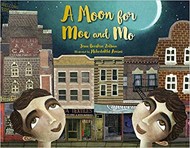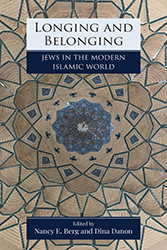By
– December 14, 2011
This compilation of sixteen essays by scholars and activists addresses the complex relationship between Muslims and Jews in America. Congressman Keith Ellison writes in the foreword, “The thing to understand about Muslim-Jewish relations in the United States is that they are just fine.” The editors, both academics, are active in Abraham’s Vision, “a conflict transformation organization working within and between the Jewish, Muslim, Israeli, and Palestinian communities.“
The book is organized into four loosely assembled sections whose selected essays do not always fit well together. For instance, the first section includes a diatribe by Omid Safi against pro-Israel Jewish organizations that embrace U.S Evangelical Christians, as well as an essay by Rabbi Amu Eilberg about “Children of Abraham in Dialogue.” Section four includes two essays that are actually speeches by Rabbi Eric Yoffie and Ingrid Mattson (a Muslim woman), delivered, respectively, to the Islamic Society of North America and the Union for Reform Judaism. While these two speeches dovetail, because in each case the speaker was addressing a mainstream audience of the “other,” the section’s last two essays, dealing with Iranian Jews and Muslims and peacemaking in America, seem out of place. Besides the organizational problems, the essays suffer from a group-think in that most of them are drawn from a similar perspective; the Muslim voices are primarily traditionalist while the Jewish voices represent a liberal, progressive Jewish view.
These drawbacks aside, the book is an original and insightful attempt to bring together a variety of writers about an important subject. For instance, Rabbi Brad Hirschfield details his experience working for the American Muslim television network Bridges TV, during which the co-founder, Mo Hassan, murdered his wife, Aasiya Zubair. Taymiya Zaman describes how Muslim organizations on college campuses have imitated Jewish groups like Hillel in gaining access and prominence on campus. Certainly this collection of essays represents a good beginning to the study and discussion of this important topic. Acknowledgements, index, notes.
The book is organized into four loosely assembled sections whose selected essays do not always fit well together. For instance, the first section includes a diatribe by Omid Safi against pro-Israel Jewish organizations that embrace U.S Evangelical Christians, as well as an essay by Rabbi Amu Eilberg about “Children of Abraham in Dialogue.” Section four includes two essays that are actually speeches by Rabbi Eric Yoffie and Ingrid Mattson (a Muslim woman), delivered, respectively, to the Islamic Society of North America and the Union for Reform Judaism. While these two speeches dovetail, because in each case the speaker was addressing a mainstream audience of the “other,” the section’s last two essays, dealing with Iranian Jews and Muslims and peacemaking in America, seem out of place. Besides the organizational problems, the essays suffer from a group-think in that most of them are drawn from a similar perspective; the Muslim voices are primarily traditionalist while the Jewish voices represent a liberal, progressive Jewish view.
These drawbacks aside, the book is an original and insightful attempt to bring together a variety of writers about an important subject. For instance, Rabbi Brad Hirschfield details his experience working for the American Muslim television network Bridges TV, during which the co-founder, Mo Hassan, murdered his wife, Aasiya Zubair. Taymiya Zaman describes how Muslim organizations on college campuses have imitated Jewish groups like Hillel in gaining access and prominence on campus. Certainly this collection of essays represents a good beginning to the study and discussion of this important topic. Acknowledgements, index, notes.
Seth J. Frantzman received his Ph.D. from the Hebrew University of Jerusalem where he currently holds a Post-Doctoral Fellowship. He is a columnist for the Jerusalem Post and Fellow at the Jerusalem Institute of Market Studies.




